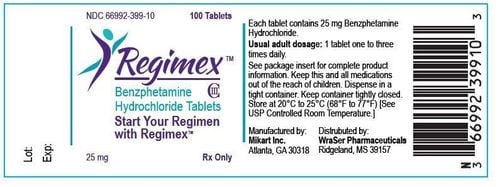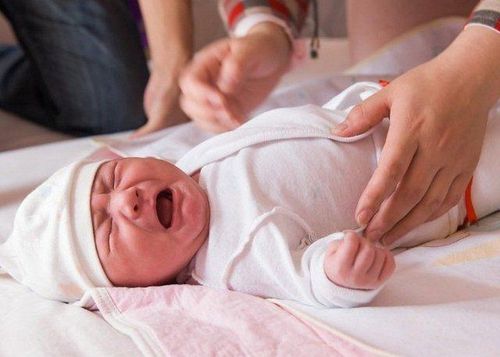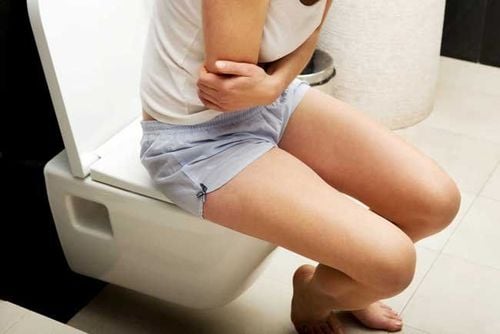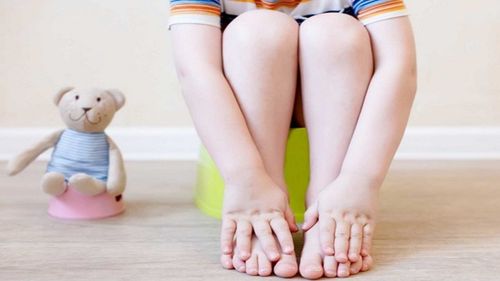This is an automatically translated article.
Losing weight after pregnancy is like a battle, because mothers have to take care of their children, make sure they have enough milk to breastfeed, and ensure the safety of the postpartum recovery process. However, it is important to return to a healthy weight after giving birth, especially if you intend to become pregnant again in the future.The following article will show some effective methods to help you achieve a stable postpartum weight through 16 effective tips to lose weight after pregnancy.
1. Risk of being overweight for pregnant women
According to the Centers for Disease Control and Prevention (CDC), it is normal for a healthy woman to gain between 11.5 and 16 kilograms during pregnancy.According to research published in the American Journal of Obstetrics & Gynecology, factors that cause women to gain weight during pregnancy include:
Fetal placenta Amniotic fluid Growing breasts Blood Expanding uterus Fat Parts Excess fat acts as an energy reserve for childbirth and lactation. However, excessive weight gain can lead to too much fat causing excess.
However, according to one statistic, up to half of women during pregnancy often gain more than the recommended weight. When they gain weight without losing weight after giving birth, "dairy moms" are at risk of health problems such as:
Increased risk of overweight, obesity Increased risk of diabetes and heart disease Blood vessels Higher risk of complications during pregnancy Risk of gestational diabetes
2. 16 tips to help women lose weight after pregnancy
2.1. Stay on track to lose weight after giving birth In a 2015 study, about 75% of women weighed more after giving birth than before pregnancy within the first year. Of these women, 47% gained more than 4.6 kg in 1 year and about 25% continued to gain 9.2 kg.Depending on the amount of weight gained during pregnancy, it is actually possible to lose about 4.5 kg within 1 to 2 years after giving birth.
Make a scientific eating plan and exercise regularly, you will surely achieve any appropriate weight loss that the doctor recommends.
2.2. Don't Break the Diet The Diet for Fat Loss After Childbirth is a very low calorie diet that aims to lose a large amount of weight in the shortest time possible.
After giving birth to a baby, a woman's body needs to provide a lot of good nutrition to quickly recover health. In addition, while breastfeeding, the body needs more calories than usual to make enough milk.
A low-calorie diet can deprive the body of important nutrients and cause fatigue. This will affect newborn care and health.
If your weight is stable, you should only reduce your calorie intake by about 500 calories per day. This will stimulate weight loss of 0.5 kg per week.
For example, a woman who eats about 2,000 calories a day could eat 300 fewer calories and burn an extra 200 calories through exercise, which would burn 500 calories.
2.3. According to the World Health Organization (WHO), the American Academy of Pediatrics (AAP) recommends that babies be breastfed instead of formula milk. Breastfeeding for the first 6 months of life (or longer) has many benefits for both mother and baby such as:

Một số nghiên cứu cho thấy cho trẻ bú có thể hỗ trợ quá trình giảm cân sau khi mang thai
Breast milk contains all the nutrients a baby needs for growth and development in the first 6 months of life
Supports a healthy baby's immune system:
Breast milk also contains antibodies vital organs that help your baby fight off viruses and bacteria.
Reduced risk of disease in babies:
Breastfed babies have a lower risk of asthma, obesity, type 1 diabetes, respiratory disease, ear infections, sudden infant death syndrome neonatal morbidity (SIDS) and gastrointestinal infections.
Reduces maternal disease risk:
Breastfeeding mothers have a lower risk of high blood pressure, type 2 diabetes, breast and ovarian cancer.
Additionally, research has shown that breastfeeding can aid in weight loss after pregnancy.
2.4. Track your daily calorie intake Tracking calories helps to know how much your body is absorbing, ensuring your body is loaded with enough calories to provide the necessary energy and nutrition.
2.5. Eat fiber-rich foods Eating high-fiber foods helps with weight loss, so include healthy grains and vegetables
2.6. Store healthy proteins According to research, adding protein to the daily diet can boost metabolism, reduce appetite and reduce calorie intake.
When eating protein-rich foods like meat, eggs, dairy, the body uses more energy to digest than other foods, resulting in more calories burned. In addition, protein can also suppress appetite by increasing the satiety hormones GLP and GLP-1, as well as decreasing the hunger hormone ghrelin.

Bổ sung protein vào chế độ ăn có thể giúp bạn giảm cân sau khi mang thai
Lean meat Eggs Beans and bean products Nuts and seeds Milk, dairy products like butter, cheese 2.7. Should eat many small meals a day instead of 3 main meals 2.8. Limit sweets Although they may be tempting, sugar is high in calories and often low in nutrients. In addition, consuming a lot of sugar and refined starches can lead to weight gain, diabetes, heart disease, some cancers and even cognitive decline.
High-sugar food sources that should be limited include:
Sugary drinks Canned juices Any type of refined sugar Cookies, cakes Reduce sugar consumption by avoiding foods processed foods, instead increase the intake of foods such as vegetables, beans, fruits, meat, fish, eggs, milk,...
2.9. Avoid Processed Foods Processed foods are often high in sugar, unhealthy fats, salt, and calories, all of which can interfere with weight loss efforts. So stay away from the following foods:
Fast food Prepackaged foods Greasy fried foods: french fries, fried chicken,... Cookies and pies, candies Sugary cereals Instead For eating the above unhealthy foods, eat fresh, whole, nutrient-rich foods.
2.10. Avoid alcoholic beverages such as beer, wine Research has shown that, if daily consumption of small amounts of alcohol, such as a glass of red wine, will bring health benefits. However, when losing weight, alcohol will cause the body to absorb more calories without providing nutrition.
In addition, alcohol can possibly lead to more fat storage around the organs, especially belly fat.
Especially for women who are breastfeeding, should not drink alcohol to ensure the safety of the baby.
2.11. Be active Being physically active has many benefits, especially when it comes to weight loss. Walking, jogging, running, cycling burn calories and bring many health benefits. Exercise also improves heart health, reduces the risk and severity of diabetes, and may reduce the risk of certain types of cancer.
After giving birth, a woman's pelvis and stomach need time to heal, especially during a cesarean section.

Vận động có nhiều lợi ích, đặc biệt có thể giúp giảm cân sau khi mang thai
According to research, postpartum people can do gentle exercise, walking.
2.12. Get the Right Exercises Research has shown that a combination of diet and resistance training is considered the most effective way to lose weight and improve heart health.
Simple bodyweight exercises at home that can be tailored to each person's skill level.
2.13. Drink enough water According to research, drinking water can increase feelings of fullness and stimulate metabolism, leading to weight loss.
However, for women who are breastfeeding, staying hydrated is important to replace fluids lost through lactation. Should drink white water.
2.14. Get enough sleep With breastfeeding mothers, getting enough sleep is difficult because it depends on the sleep time of their children. However, try to get enough sleep because:
Lack of sleep can negatively affect weight. A study has shown that sleep deprivation is associated with weight gain after pregnancy.
So moms don't forget, your health is as important as the baby's health, so ask your loved ones to help take care of the baby together to get enough sleep.
2.15. Lose weight in groups Losing weight in groups will help create more motivation. In one study analysis, people who participated in group weight loss diets tended to lose more, or at least more, than those who lost weight alone.
So find a method that suits your lifestyle and preferences
2.16. Thanks to the sharing and help of relatives. Being a mother for the first time will be difficult for many things. Lack of sleep and stress make the body tired and overloaded leading to postpartum depression.
Although it is very important to lose weight after giving birth, and to want your body to return to its previous shape quickly, you should not cause excessive stress and worry. Ask your family for help, share the chores, take care of the baby so your body can rest or have time to exercise.
Please dial HOTLINE for more information or register for an appointment HERE. Download MyVinmec app to make appointments faster and to manage your bookings easily.
Reference source: healthline.com












